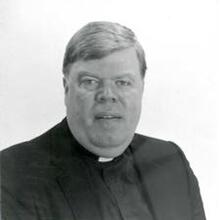During the 1980s the U.S. Catholic community debated the nature of a consistent ethic of life. Prodded by Cardinal Joseph Bernardin, activists and intellectuals attempted to link the church’s staunch opposition to abortion with its prudential opposition to capital punishment and its increasingly strict interpretation of just war criteria. The consistent ethic quickly expanded to include economics, immigration, environmentalism and even the politics of the soft-loan window. Despite its goodwill, the consistent ethic sagged under the weight of its own inclusiveness.
Recently, Catholic dioceses have tended to focus on three issues burning on the church-state frontier: the right to life, family law and religious freedom. Clearly, each of these issues has its own complications. But are they united by some common framework? Do they constitute a new consistent ethic for the American church?
The emphasis on a robust free exercise of religion clearly has shaped the church’s advocacy on behalf of the innocent’s right to life and of the right of the monogamous heterosexual couple to remain the civic marital norm. The church’s longstanding resistance to abortion and euthanasia is increasingly a critique of state coercion. The defense of the conscience of health care workers who refuse to participate in objectionable medical procedures remains the centerpiece of the church’s advocacy for freedom against the ambient culture of death. It encompasses communitarian as well as individual rights. It underscores the right of a hospital to refuse to perform abortions, of a medical school to refuse to provide abortion training and of a nursing home to refuse to open the door to Dr. Jack Kevorkian’s disciples.
Similarly, in the debate over the expansion of the civic definition of the family to include same-sex spouses, the bishops have highlighted the peril to religious freedom implicit in such an alteration. Government workers who refuse to preside over or register such unions may lose their posts. Adoption agencies who insist that a child deserves both a mother and a father have faced the revocation of their license. Caterers, photographers and owners of reception halls who refuse to participate in objectionable marital celebrations have become the objects of litigation. Questions of conscience increasingly animate the church’s defense of both life and the family.
And yet. The libertarian contours of the current defense of the right to life and the traditional family go only so far. The free exercise of religion may be our first and most sacred right, but it is not absolute. There is no question of the sincerity of those who insist that civic tolerance of physician-assisted suicide or recognition of same-sex romantic commitments is a matter of conscience, often rooted in religious conviction. Our very campaign against euthanasia or alteration of traditional family civil codes rests on the conviction that certain social goods are so compelling that civic restraints on the exercise of personal desire are justified. The virtue of prudence cannot retire from these debates in the name of freedom alone.
The search for consistency can also blunt the urgency of some political questions over others. There are excellent reasons to oppose the abandonment of monogamous heterosexual marriage as the norm for civic family policy. But it is difficult to see how alterations in family policy can match the moral gravity of our decision to kill the innocent human beings we target as burdens in our practice of abortion and euthanasia. Just as an earlier consistent ethic tended to level moral differences in an allegiance to a hundred disparate causes, our current trifecta of public policy issues can divert our gaze from the scandal of our national complicity in the calculated destruction of the innocent.
Perhaps the greatest consistency underlying these three causes is a negative one. All are built on a moral critique of contemporary American culture. In its abandonment of the right to life in its borderline stages, its expansion of the notion of family and its narrowing of the concept of religious freedom, the nation has abandoned a moral vision recently considered self-evident to nearly all citizens. If an “American moment” ever existed in Catholicism, it has long since vanished. The church’s anguished protest in defense of human life, human love and human freedom is part of the requiem.








